A fruitful AGROMIX-MIXED-STARGATE webinar discussing frameworks for assessing mixed systems and ‘mixedness’
Assessment of efficiency and resilience of sustainable agricultural systems is a highly complex process. Defining concepts and developing frameworks are important elements in achieving useful knowledge and tools that in turn will help developing sustainable systems and enabling policies.
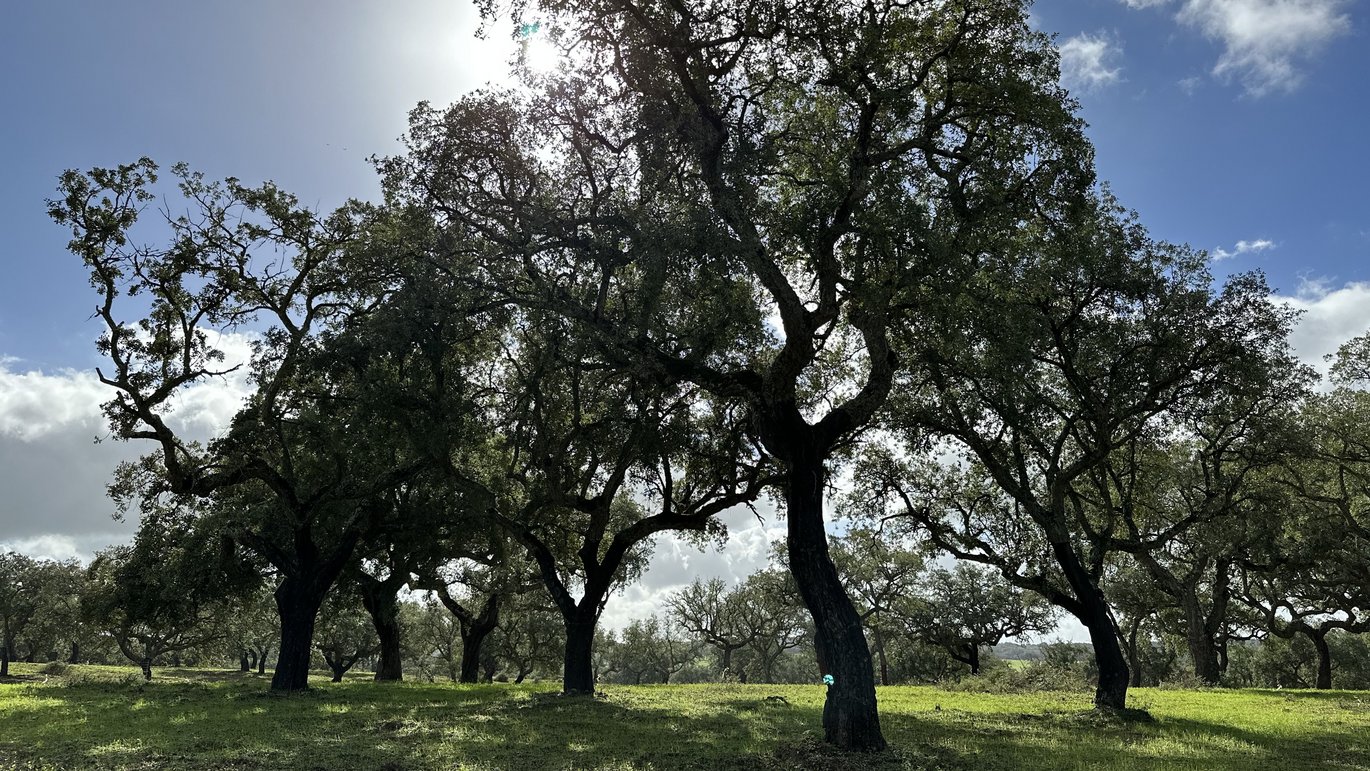
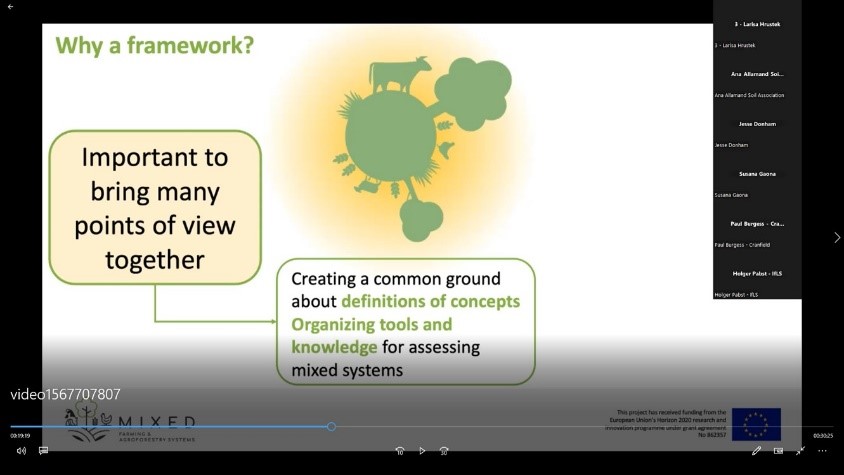
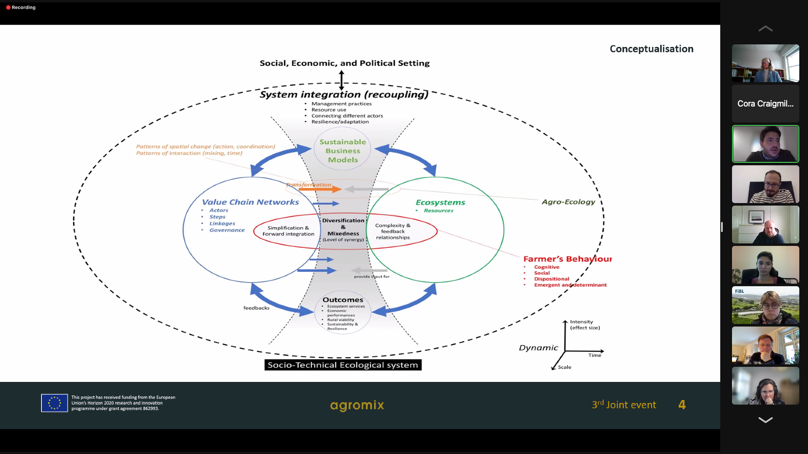
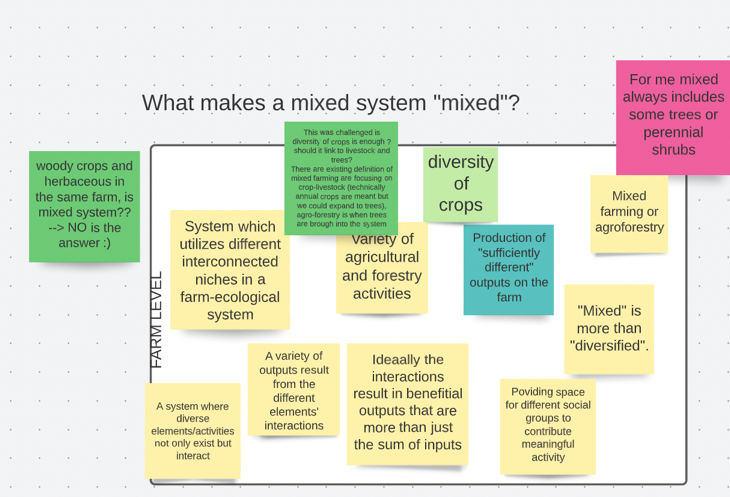
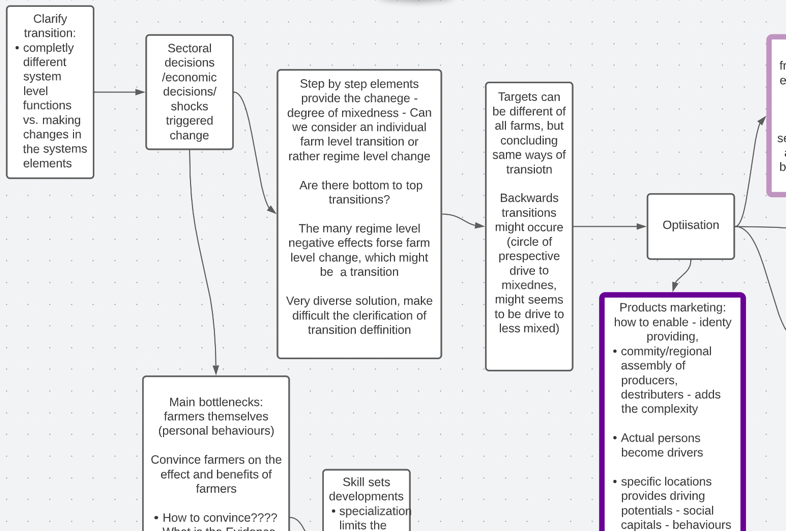
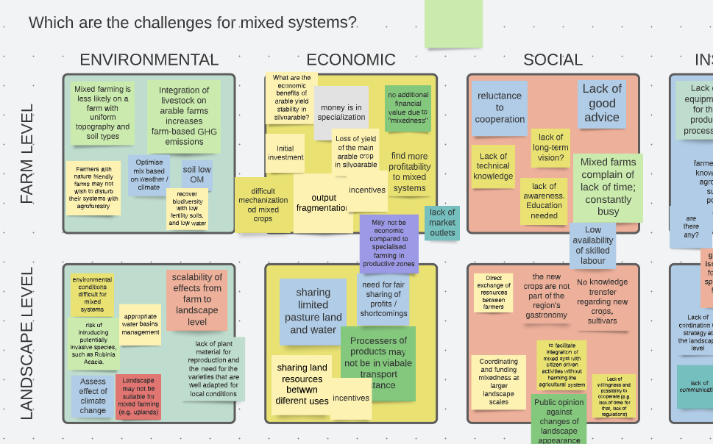
The three EU Horizon 2020 funded projects AGROMIX, MIXED and STARGATE, are all working towards the same EU mission: creating more climate-smart and resilient farming systems (LC-SFS-19-2018-2019). While STARGATE is working under the heading ‘Microclimate management: from field to landscape, AGROMIX and MIXED are working under the heading ‘Efficiency and resilience of mixed farming ad agroforestry systems’. Nevertheless, the projects often come across the same concepts. One of these concepts is that of mixedness, a relatively new concept, which is yet to have a concrete definition, however is vaguely understood as a form of mixed agriculture.
The purposes of the webinar held on December 12th, 2022 – led by MIXED and organised with the support of AGROMIX and STARGATE – are to have an overview of the conceptual frameworks built around the concepts of “mixedness” in the three projects; and to brainstorm together around some key concepts, and thereby to move towards a common and shared definition. Around 60 participants from different specialised fields came together in a two-hour webinar which was divided into three parts:
- presentations from the projects on how they each approach the concept
- three parallel breakout sessions addressing three different topics (defining mixedness, transition to MIXED systems, and key challenges), and
- reporting from the breakout sessions and concluding remarks
AGROMIX representative Fabio Bartolini from the University of Ferrara and MIXED representative Francesco Accatino from INRAE, talked about how each project had interacted with the concept of mixedness. Fabio and Francesco both emphasised the need to develop a framework for defining, organising, and interlinking different interpretations of the concept, in order to ensure project coherence and efficiency. They also underlined that currently mixedness has different meanings at different levels (farm, landscape, territorial and value chain). See recordings of the two presentations:
Participants were then divided into three parallel discussion groups. Each group focused on a different topic that had been chosen according to the identified needs. Group one focused on the topic of `defining mixedness’; group two on the topic of `meaning of transitioning to MIXED systems’, and group three on the 'key challenges for mixed systems'. In all three groups the discussions addressed farm as well as landscape level.
Defining mixedness
A point that kept emerging throughout the webinar was the risk of highjacking existing definitions of concepts that had already been established, since this could have far-reaching consequences and generate confusion at different levels. This is especially the case when defining new concepts such as mixedness, since not having a clear understanding of existing concepts that are relevant or related, could result in new concepts being ill-defined. In an effort to find a common ground for defining the concept of mixedness, some very pertinent questions were raised, such as “is it enough to have crop diversity to make a system mixed or should crops be linked to livestock and trees?”. The concept was also discussed according to its meaning in different spheres, or “levels”. At farm level, mixedness should be understood as different types of mixing, which could either include mixed agriculture (annual crop -livestock) or agroforestry (trees combined with other agricultural activities). At a landscape level on the other hand, mixedness is about farmers interacting and exchanging feed or manure and different land covers and activities combined and together producing values that go beyond food, such as ecosystem services.
Transition to MIXED systems
Transitioning to a mixed system is not a straightforward task and requires a concerted effort from all actors involved. This was the theme discussed in group two, where strategies and pathways for achieving a smooth transition to mixed systems were highlighted. Many questions were addressed including “what is understood by ‘transition’ itself?”, concluding that at a policy level there is still no clear definition of what is understood by the term. Barriers that might be encountered at different stages of the transition phase were also highlighted. Farmer behaviour, for example, was identified as a potential barrier since it is not always clear to them whether the transition will be financially viable or whether it will simply result in longer working hours. The group talked about the need to find arguments for promoting and convincing producer’s transition to mixed farming. Again, the need to have clear definitions of terms and concepts for securing a smooth transition was stressed.
Key challenges
The challenges were discussed at both farm and landscape level and were divided according to whether they were environmental, economic, social or institutional challenges. Challenges included not having enough subsidies to help in the transition to mixed systems and farmers not having enough time to implement complex mixed systems. A lack of clarity around how mixed systems work was also identified as a key barrier. It is still not clear for example what soil quality favours mixed systems. The assumption is that it should be somewhere in the middle seeing that if soil quality is very good, then it becomes advantageous to plant crash crops year after year. These assumptions must be validated if we want mixed farming and mixedness to gain more legitimacy at different levels.
Discussion and conclusions
The webinar was a steppingstone for the sister projects, and it generated a fruitful discussion that went beyond its initial scope. The main takeaway message was that all project actors should make a collective effort to keep concept definitions aligned and up-to-date in order to ensure a smoother transition to mixed systems. The meeting came to an end with Tommy Dalgaard, coordinator of the MIXED project, re-emphasising the importance of having these dialogues and bringing people together for project cross-pollination.
This webinar was dedicated to Professor Dimitrios Moshou (coordinator of Stargate) who sadly passed away on 9th of December - only a couple of days before the webinar. The sadness and shock caused by his sudden death did not allow anyone from STARGATE to participate in the webinar. Thus, the announced presentation from STARGATE ‘A Multi-agent Reinforcement Learning Approach for Microclimate Land-Use Management in mixed farming environments’ had to be taken out of the webinar program.
